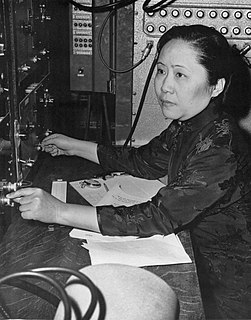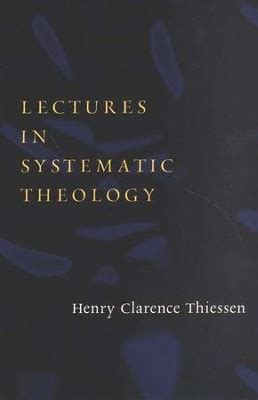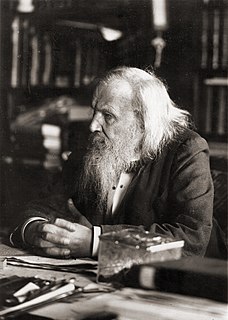A Quote by Paul Davies
People take it for granted that the physical world is both ordered and intelligible. The underlying order in nature - the laws of physics - are simply accepted as given, as brute facts. Nobody asks where they came from; at least not in polite company. However, even the most atheistic scientist accepts as an act of faith that the universe is not absurd, that there is a rational basis to physical existence manifested as law-like order in nature that is at least partly comprehensible to us. So science can proceed only if the scientist adopts an essentially theological worldview.
Quote Topics
Absurd
Accepted
Act
Asks
Atheistic
Basis
Both
Brute
Came
Company
Essentially
Even
Existence
Facts
Faith
Given
Granted
However
Intelligible
Law
Laws
Laws Of Physics
Least
Like
Most
Nature
Nobody
Only
Order
Ordered
Partly
People
Physical
Physical World
Physics
Polite
Proceed
Rational
Science
Scientist
Simply
Take
Theological
Underlying
Universe
Us
World
Worldview
Related Quotes
The belief in an external world independent of the perceiving subject is the basis of all natural science. Since, however, sense perception only gives information of this external world or of "physical reality" indirectly, we can only grasp the latter by speculative means. It follows from this that our notions of physical reality can never be final. We must always be ready to change these notions - that is to say, the axiomatic basis of physics - in order to do justice to perceived facts in the most perfect way.
But science can only be created by those who are thoroughly imbued with the aspiration toward truth and understanding. This source of feeling, however, springs from the sphere of religion. To this there also belongs the faith in the possibility that the regulations valid for the world of existence are rational, that is, comprehensible to reason. I cannot conceive of a genuine scientist without that profound faith. The situation may be expressed by an image: science without religion is lame, religion without science is blind.
Nearly everybody nowadays accepts the 'causal completeness of physics' - every physical event (or at least its probability) has a full physical cause. This leaves no room for non-physical things to make a causal difference to physical effects. But it would be absurd to deny that thoughts and feelings (and population movements and economic depressions . . .) cause physical effects. So they must be physical things.
Understanding human nature must be the basis of any real improvement in human life. Science has done wonders in mastering the laws of the physical world, but our own nature is much less understood, as yet, than the nature of stars and electrons. When science learns to understand human nature, it will be able to bring a happiness into our lives which machines and the physical sciences have failed to create.
The scientist is not responsible for the laws of nature. It is his job to find out how these laws operate. It is the scientist's job to find the ways in which these laws can serve the human will. However, it is not the scientist's job to determine whether a hydrogen bomb should be constructed, whether it should be used, or how it should be used. This responsibility rests with the American people and with their chosen representatives.
The Bible is to the theologian what nature is to the scientist, a body of unorganized, or only partly organized facts. God has not seen fit to write the Bible in the form of a systematic theology; it remains for us, therefore, to gather together the scattered facts and to build them up into a logical system.
If this "critical openminded attitude" ... is wanted, the question at once arises, Is it science that should be studied in order to achieve it? Why not study law? A judge has to do everything that a scientist is exhorted to do in the way of withholding judgment until all the facts are in, and then judging impartially on the merits of the case as well as he can. ... Why not a course in Sherlock Holmes? The detectives, or at least the detective-story writers, join with the scientists in excoriating "dogmatic prejudice, lying, falsification of facts, and data, and willful fallacious reasoning."
Nothing can better express the feelings of the scientist towards the great unity of the laws of nature than in Immanuel Kant's words: "Two things fill the mind with ever new and increasing awe: the stars above me and the moral law within me."... Would he, who did not yet know of the evolution of the world of organisms, be shocked that we consider the moral law within us not as something given, a priori, but as something which has arisen by natural evolution, just like the laws of the heavens?
There is no conflict between the ideal of religion and the ideal of science, but science is opposed to theological dogmas because science is founded on fact. To me, the universe is simply a great machine which never came into being and never will end. The human being is no exception to the natural order. Man, like the universe, is a machine.


































